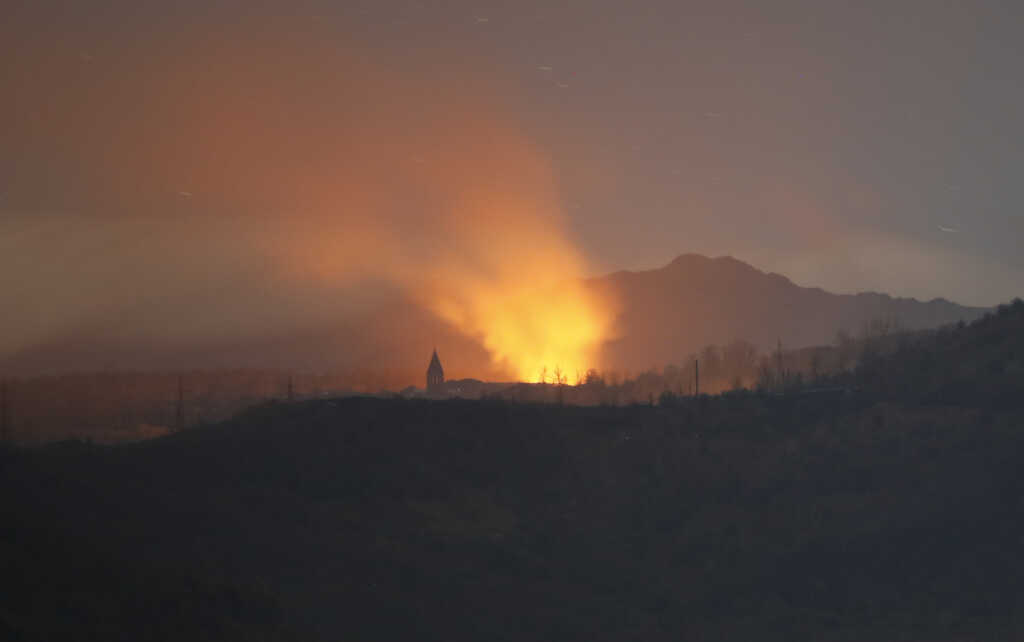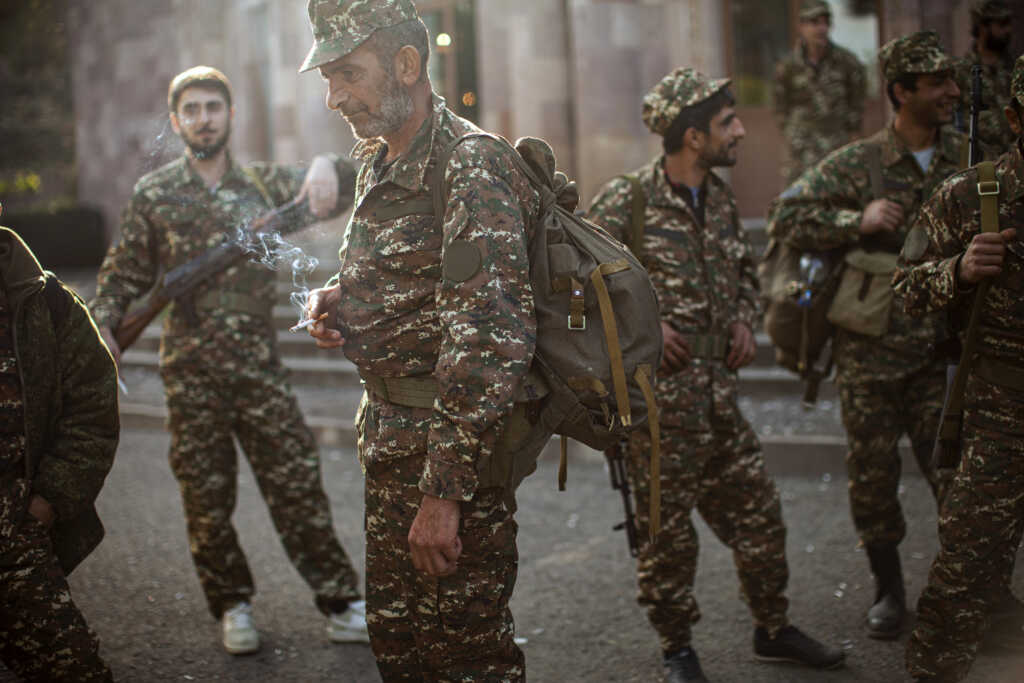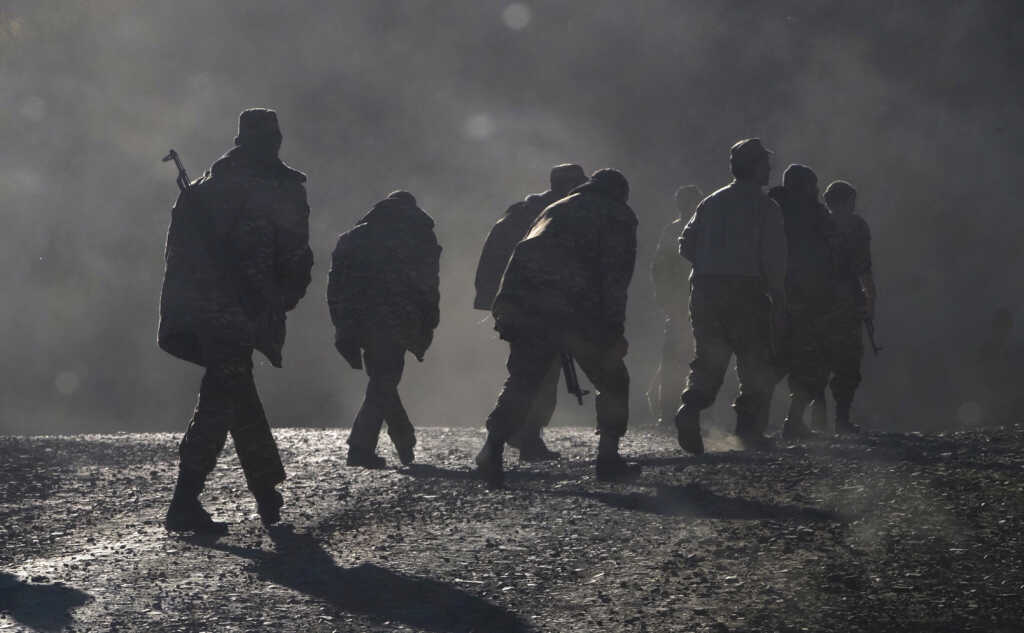Many Americans are likely unfamiliar with Nagorno-Karabakh, a small, landlocked region between Armenia and Azerbaijan, two countries that were once part of the Soviet Union.
But here’s why this region matters: Tensions in the area — mainly inhabited by Armenian Christians — have reached a fever pitch, with Armenians warning the conflict could endanger their Christian history.
Listen to the latest episode of CBN’s Quick Start podcast 👇
There’s much to unpack, though the location of Nagorno-Karabakh is one of the root causes of its troubles, with two nations vying for control – and with other actors delving into the chaotic mix.
“It’s kind of on this land bridge between Iran, Turkey, and Russia,” Joel Veldkamp, head of international communications at persecution watchdog Christian Solidarity International (CSI), recently told CBN’s Faithwire. “[It’s] a very complicated part of the world.”
Adding to the intricacies is the fact Nagorno-Karabakh is “part of the historical homeland of the Armenian Christian people,” who were collectively the first nation to convert to Christianity in 301 A.D.
Russia’s Role
Much of the consternation surrounding Nagorno-Karabakh involves decisions made by the former Soviet Union, with Russia still playing a role today.
“It was part of the Soviet Union [and] the Russians put it inside the borders of this other country called Azerbaijan, pretty much designing problems to come down the line,” Veldkamp said. “They were always discriminated against and marginalized within the borders of Azerbaijan.”
Watch Veldkamp discuss the dire issues in Nagorno-Karabakh:
The Soviets first established the region in the 1920s, according to The Washington Post.
Decades later, in 1988, the people of Nagorno-Karabakh, who are 95% ethnically Armenian, reportedly decided to become part of Armenia, considering they shared a common language and religion.
“In 1988, the Nagorno-Karabakh legislature passed a resolution to join Armenia despite the region’s legal location within Azerbaijan’s borders,” the Council on Foreign Relations wrote. “As the Soviet Union was dissolving in 1991, the autonomous region officially declared independence.”
This attempt at leaving the Soviet nation of Azerbaijan for Armenia, then another Soviet country, sparked decades of conflict and anger. According to Veldkamp, Azerbaijan has been “trying to wipe these people out essentially,” with deadly clashes leading to monumental losses.
The Turkey Connection
While some characterize the fighting as a land dispute, others note it goes much deeper. This was a sentiment shared previously in a 2020 CBN News interview with Armenian composer Daniel Decker.
“It was started by the Azeris who are not only trying to take territory that has been historically Armenian for thousands of years, but they don’t want to stop with the taking of territory,” Decker said. “They want to wipe out the Armenian people.”
He continued, “They are backed openly by the Turkish government, who on one hand says there was never a genocide and on the other say now we are coming to finish what we started.”
Decker is, of course, referring to the Armenian Genocide, which unfolded during World War I and led to Turkey killing 1.5 million Armenians. Turkey, which has historically denied this genocide occurred, has been accused of helping Azerbaijan in the current conflict, adding extra layers to the chaos.
“It is absolutely not inflammatory language when I say that this is Turkey’s policy to continue the Armenian Genocide,” Armenian Prime Minister Nikol Pashinian said in 2020. “Let us look at what Turkey is implementing in the Mediterranean, in Libya, in Syria, Iraq. To me, there is no doubt that this is a policy of continuing the Armenian Genocide and a policy of reinstating the Turkish empire.”

Breaking Down More of the History
The more serious roots in the Nagorno-Karabakh stalemate took form from the late 1980s through 1994, with war breaking out between Azerbaijan and Armenia over the land.
Azerbaijan essentially lost, and Nagorno-Karabakh became a de facto independent state. For years, the situation persisted along those same lines, with occasional issues flaring and without real resolution.
But then the crisis more deeply devolved in 2020.
“In 2020, Azerbaijan attacked again, and this time they won the war,” Veldkamp said. “It was a ferocious war. Seven thousand people were killed in just 44 days, and some 35,000 Christians were driven out of their homes, and the Armenian Christians of Karrabach lost a lot of their land.”
Land loss reportedly came as a result of the Russian-brokered ceasefire.
That conflict has left the people of Nagorno-Karabakh in a precarious place, with the military of Azerbaijan essentially surrounding them and peacekeepers barely keeping pandemonium at bay.
“[The] only thing defending them is this small group of Russian peacekeepers,” Veldkamp said. “This is not a good time to have Russia be your only protection.”
Russia’s role in the conflict comes as Vladimir Putin continues a brutal assault on Ukraine. That conflict is making Russia’s role in the Nagorno-Karabakh drama much more complicated. Plus, it has been widely seen as ineffective at stemming the problem.
Alex Fults and Paul Stronski of the Carnegie Endowment for International Peace wrote in April that Russia’s ceasefire hasn’t given “full stability” or “security” to the region.
The Religious Roots
While the government of Azerbaijan is secular and not officially Islamic, the nation’s populace is predominately Muslim. Regardless, Veldkamp said Azerbaijan wants to see the predominately Christian people of Nagorno-Karabakh “destroyed.”
“People are trying to wipe out our Christian brothers and sisters,” he said. “We want to be there for them. We want to support them.”
International Christian Concern sounded the alarm on the same issue in a March 2022 statement, warning that “aggression and cultural erasure of the Christian nation continues today.” In June, the organization noted the U.S. Department of State’s “2021 Report on International Religious Freedom” expressed concerns over the “destruction of Armenian religious sites by Azerbaijan.”

“According to a bishop of the Armenian Apostolic Church, since May, the government refused access of Armenian pilgrims to a monastery in the territory that returned to Azerbaijani control after the 2020 fighting,” the report reads, in part.
Open Doors USA noted similar fears in 2020 over the 1,600 historic Armenian Christian chapels, artifacts, and monuments that were at risk of being destroyed; as a result, the organization issued a forewarning about the potential “damaging [of] the region’s Christian heritage.”
Of course, the broader impact of war and the intense battles on the ground have sparked increased needs for the populace.
How Groups Like CSI Are Helping
Veldkamp said CSI has had a long history of helping out in the region. He explained how the group would help get medicine and food via helicopters and airplanes when the conflict was raging in the 1990s.
CSI also did human rights reporting on the ground in Nagorno-Karabakh, shedding light on what was unfolding. Today, the organization continues to support the region.
“Since the war started again in 2020, we’ve been helping displaced people find housing, pay for heating, get supplies to start jobs in the places where they’ve been forced to flee … usually inside the republic of Armenia,” he said. “And we also support a rehabilitation center, which is a state-of-the-art facility that helps people who’ve been wounded in the war and helps children with disabilities and other people with special needs.”
Veldkamp held little back while warning about the worst-case scenario should Russia pull back from its peacekeeping mission in Nagorno-Karabakh, and let the situation further devolve.
“The worst case scenario is genocide,” he said. “We’ve seen every time Azerbaijan has conquered territory that has Armenian civilians living on it, those civilians are either executed or taken hostage and never heard from again.”
As people learn more about the conflict, Veldkamp encouraged them to assess America’s role. Allowing Russia to take the lead, he said, has sparked challenges and unpalatable consequences.
But considering America’s allegiances, he encouraged more U.S. pressure.
“The United States gives military aid to Azerbaijan,” he said. “And the other country that helps Azerbaijan and its war against Karabakh is Turkey, which is a close military ally of the United States.”
Veldkamp added, “So why is the United States silent on this? Why are they not calling the presidents of Turkey, Azerbaijan and saying, ‘Stop this?’ … We should ask this of our leaders.”
He encouraged people to pray for those embroiled in the Nagorno-Karabakh conflict.
***As the number of voices facing big-tech censorship continues to grow, please sign up for Faithwire’s daily newsletter and download the CBN News app, developed by our parent company, to stay up-to-date with the latest news from a distinctly Christian perspective.***



